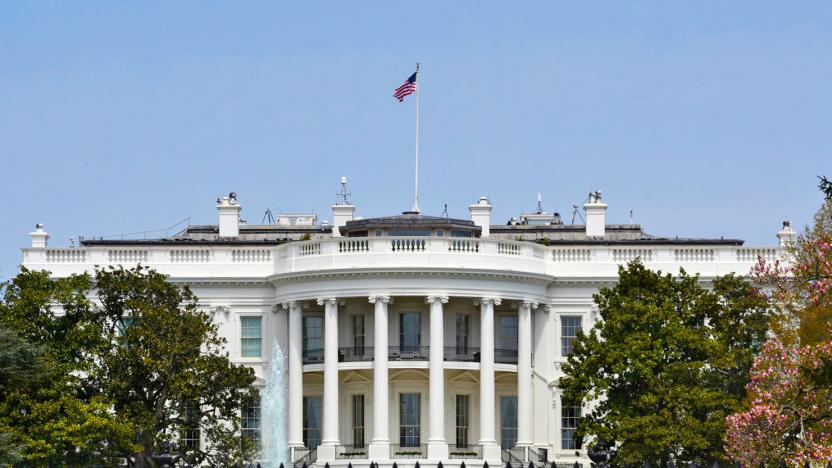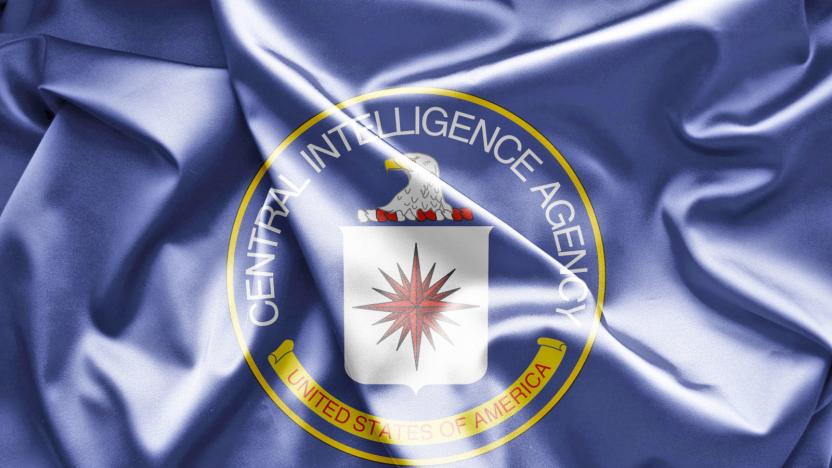cyberespionage
Latest

Trump reportedly reverses Obama-era rules for US cyber operations
The Trump administration has reportedly reversed an Obama-era framework for how and when the US can use cyber attacks against foes. President Trump undid Presidential Policy Directive 20 yesterday according to the Wall Street Journal's sources, and with it reversed a classified framework detailing a multi-agency process that must be followed before carrying out an attack.

Microsoft is waging a quiet war against elite Russian hackers
Microsoft has proven itself to be an unlikely vigilante in the ongoing international cyberespionage story. The company started out suing the hacking group Fancy Bear for using domain names that violated Microsoft's trademarks, and in doing so unearthed an extensive network of command-and-control servers. Via domains such as 'livemicrosoft.net' or 'rsshotmail.com', hackers are able to communicate with malware installed on targeted computers. But once the domains are back under Microsoft's control they're redirected back from Russian servers, giving the company a bird's-eye view of Fancy Bear's server network. Since August, Microsoft has taken over 70 different command-and-control points from Fancy Bear using this lawsuit.

US government removes Kaspersky from approved vendors list
Kaspersky Lab's ongoing fears that it would lose US government contracts due to its alleged links with the Russian government have been realised. The Trump administration has removed the Moscow-based cyber security company from two lists of approved vendors covering IT services and digital photographic equipment. According to a spokeswoman for the US General Services Administration, the decision was made "after review and careful consideration". However, the move represents the most concrete action taken against Kaspersky since US government officials became suspicious of its involvement with Russian authorities.

WikiLeaks offers to work with tech firms to fix CIA exploits
Founder Julian Assange says that WikiLeaks will offer tech companies access to CIA's leaked hacking techniques and code. During a news conference held at The Embassy of Ecuador in London on Thursday, he said that it would allow firms time to "develop fixes" before further details about the techniques are revealed to the public. Assange said the CIA tools could be used to tap into servers, smartphones and even your TV.

Pentagon report: Chinese hackers accessed F-35B and other advanced US weapons systems
Many of the Pentagon's most advanced weapon systems -- including the F-35 Joint Strike Fighter and PAC-3 Patriot missile system -- were compromised by Chinese hackers, according to a classified document obtained by the Washington Post. The list of weapons was part of an earlier DoD report condemning Chinese cyber-espionage activities, but had been confidential until now. Other systems hacked are said to include the Terminal High Altitude Area Defense (THAAD), the Navy's Aegis ballistic-missile defense system, the F/A-18 fighter, V-22 Osprey and the Littoral Combat Ship used for shore patrol. Many of these form the foundation of defense systems from Europe to the Persian Gulf -- and their breach goes a long way toward explaining Washington's unprecedented dressing-down of China.

Pentagon report marks first direct accusations of Chinese cyber-espionage
The US Department of Defense has taken the unusual step of singling out China's cyber-spying activities in its annual report. Though the government has tacitly chided such deeds before and even threatened sanctions, yesterday's document marks the DoD's first direct allegation of Chinese espionage. It said that hacks directed toward government and business "appear to be attributable directly to the Chinese government and military" for the purpose of "exfiltrating information" to benefit its defense and industry. The paper also highlighted China's "lack of transparency" with regard to its military, saying that expenditures on cyber-military operations and other defense spending were likely far in excess of the $114 billion it reported. Meanwhile, China denied the accusations, saying it was equally the victim of similar breaches, and suggested that the two nations work together to resolve the problem.

WikiLeaks: Chinese Politburo responsible for Google hacking
You had to know something interesting would come out of the quarter million diplomatic cables that WikiLeaks just, well, leaked late on Sunday, and the New York Times has picked out a doozie for us. As it turns out, that big brouhaha in China surrounding the hacking of Gmail accounts was actually a state-authorized attack. Such was the report from a Chinese informant working for the US embassy, and the disclosure goes on to say that it was part of a "coordinated campaign of computer sabotage," reaching a wide net of targets, including American government machines, American private businesses, and... the Dalai Lama. Hey, China's hardly the first country to ever engage in state-sponsored cyber espionage (ahem, Stuxnet), but we can't say we're not disappointed. Let's keep it classy from here on out, alright guys?



